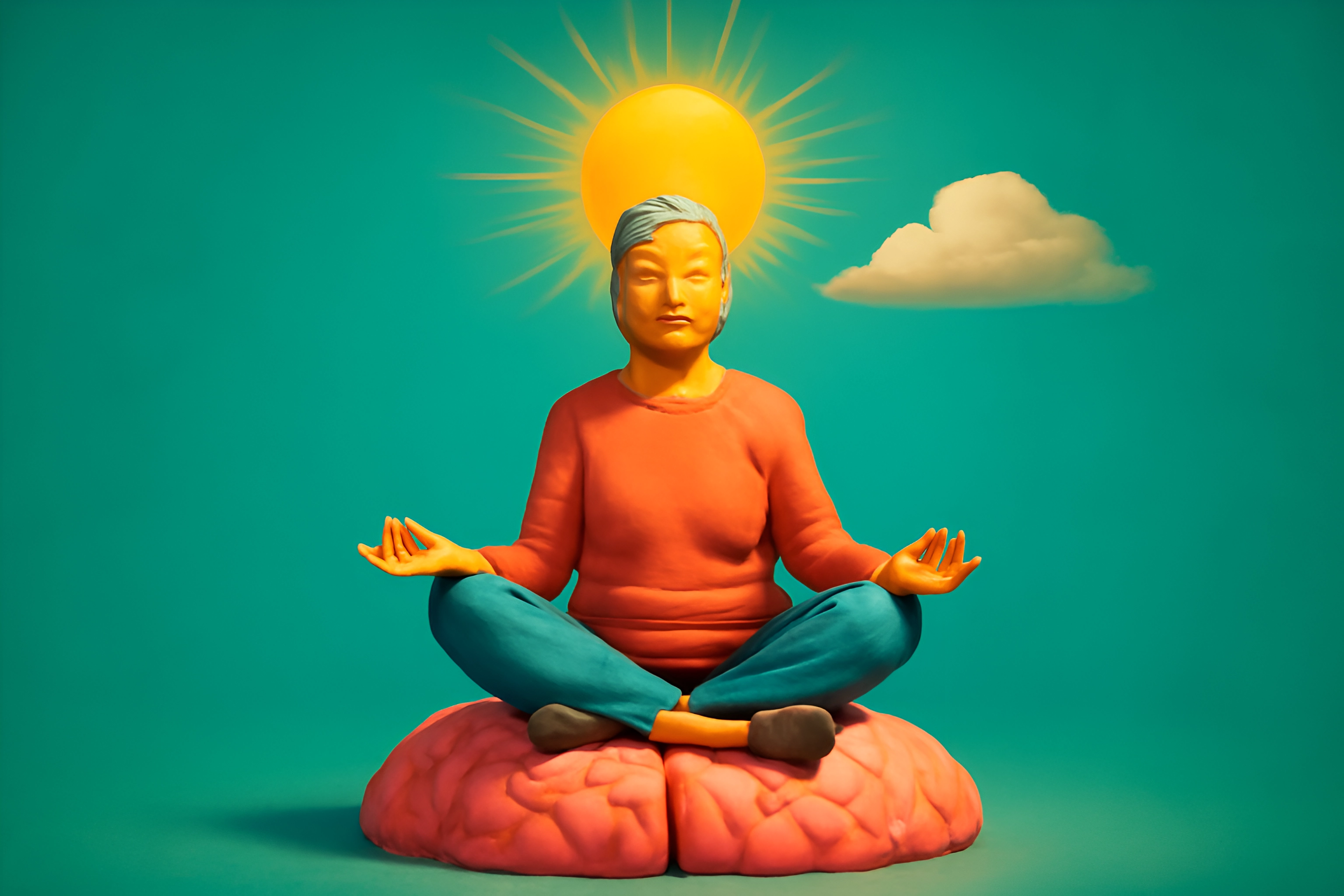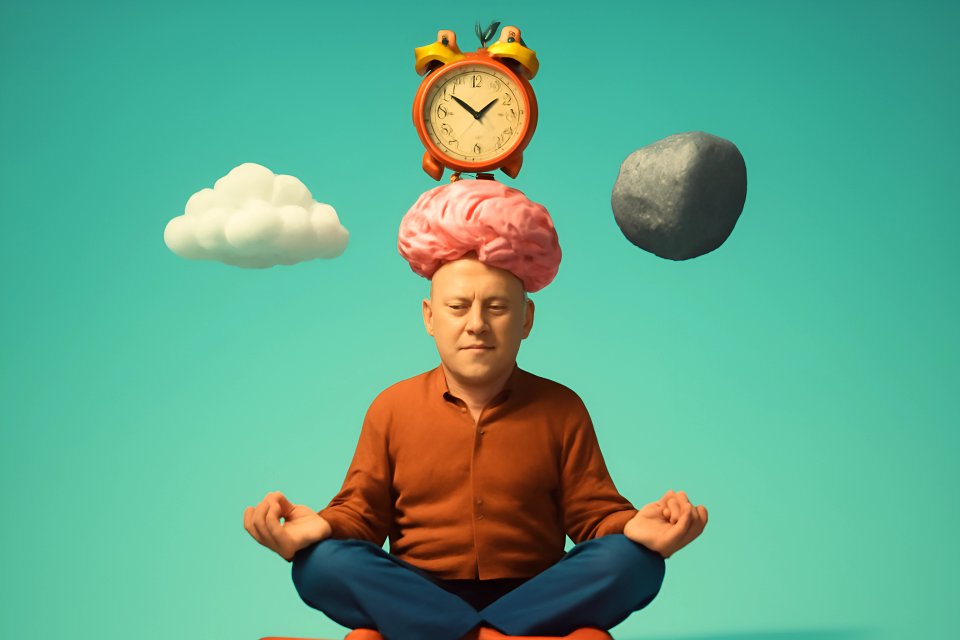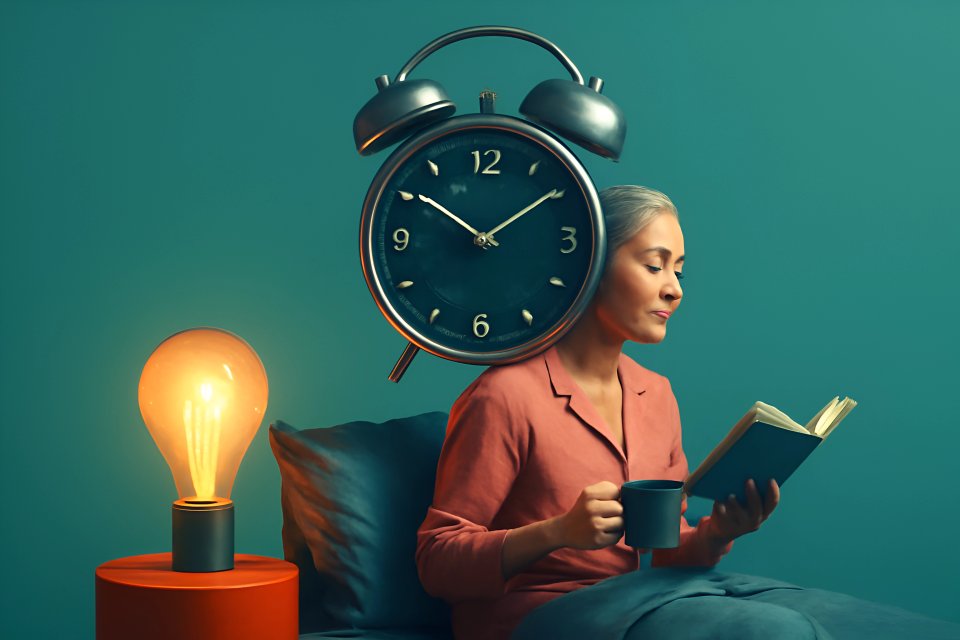
Introduction: Reclaiming Your Nights After 50
The clock strikes 3 AM, and you're wide awake, staring at the ceiling. Your mind is racing, replaying the day or worrying about tomorrow, while your body aches for the deep, restorative rest it desperately needs. If this sounds familiar, you are not alone.
For many of us over 50, a good night's sleep can feel like a distant, almost mythical, memory. It's a frustrating reality that sleep patterns change as we age, a result of natural hormonal shifts, new lifestyle rhythms, and a lifetime of accumulated stress. But here is the critical truth: while common, chronic poor sleep is not a life sentence you have to accept.
This is your blueprint for taking back control. This guide is not about a magic pill or a quick fix, but about building powerful, practical habits that signal to your body and mind that it's time for rest. In this guide, we'll walk you through creating practical evening routines for restful sleep over 50, helping you combat insomnia and wake up feeling refreshed, powerful, and ready to conquer your day.
Why Sleep Changes After 50 (And Why It Matters for Vitality)
To win the battle against insomnia, you first have to understand the battlefield. After 50, our bodies undergo significant biological shifts that directly impact our sleep architecture. Acknowledging these changes isn't about admitting defeat; it's about arming yourself with the knowledge to fight back effectively.
Several key factors are at play. Our natural production of melatonin, the crucial "sleep hormone," can decline by as much as 20-30% compared to younger adulthood, making it harder to feel drowsy. For women, the menopausal transition brings its own challenges, with studies showing that 40-60% of menopausal women report sleep disturbances due to hot flashes and hormonal fluctuations. Furthermore, our internal clock, or circadian rhythm, can shift forward, causing us to feel tired earlier in the evening and wake up long before the sun.
This isn't just about feeling groggy. Prioritizing sleep is a cornerstone of maintaining the life you love. It's fundamental for cognitive function, physical strength, emotional balance, and overall vitality. Ignoring poor sleep is like trying to run a car on an empty tank—sooner or later, everything grinds to a halt.
The Foundation: Core Sleep Hygiene Tips for Older Adults
Before building a detailed evening routine, you must lay a solid foundation. These are the non-negotiable rules of the game—the core principles that govern your body's natural sleep-wake cycle. Mastering these basics will make every other effort more powerful.
Create a Consistent Sleep Schedule
Your body craves rhythm and predictability. Going to bed and, more importantly, waking up at the same time every single day—yes, even on weekends—is the single most effective thing you can do to regulate your internal clock. Research shows that this simple act of consistency can reduce the time it takes to fall asleep by 35% and anchor your entire circadian system.
This consistency sends a powerful signal of security to your brain. It learns when to release sleep-inducing hormones like melatonin and when to release wakefulness hormones like cortisol. Think of it as setting the master clock for your entire body.
Embrace Morning Sunlight
Light is the most powerful natural cue for your circadian rhythm. Exposing yourself to 10-15 minutes of direct morning sunlight shortly after waking up is like hitting a reset button for your internal clock. This burst of light tells your brain to stop producing melatonin and start the countdown for releasing it again about 14-16 hours later.
This simple, free habit has a profound downstream effect on your evening. It helps counteract the tendency to feel sleepy too early and wake up in the middle of the night. Make it a non-negotiable part of your morning, just like brushing your teeth.
Mind Your Naps
A short "power nap" of 20-30 minutes can be a fantastic tool for a midday boost without sabotaging your nighttime rest. However, long naps or napping too late in the afternoon can be disastrous for your sleep schedule. They relieve the natural "sleep pressure" that builds throughout the day, making it much harder to fall asleep at your desired bedtime.
If you must nap, keep it short and do it before 3 PM. This gives your body enough time to rebuild the homeostatic sleep drive necessary for a consolidated night of sleep. Treat naps as a strategic tool, not an uncontrolled habit.
Rethink Your Bedroom
Your brain is a powerful association machine. Over time, it needs to learn one simple, unbreakable rule:
Your bedroom is for sleep and intimacy only.This means no more working from bed, no more stressful conversations, and absolutely no more watching TV or scrolling on your phone under the covers. When your bedroom becomes a multi-purpose room, your brain gets confused, associating it with wakefulness, stress, and entertainment. Protect your sleep sanctuary fiercely.
Building Your Practical Evening Routine: A Step-by-Step Guide
With the foundation in place, it's time to build the routine itself. This isn't about a rigid, complicated checklist. It's a flexible timeline designed to systematically calm your body and mind, preparing you for deep, restorative sleep.
2-3 Hours Before Bed: The Wind-Down Begins
The transition from the chaos of the day to the calm of the night starts here. Finish your last meal of the day, ensuring it's light and easily digestible; heavy, spicy, or fatty foods can cause indigestion that disrupts sleep. This is also the "last call" for most liquids, a key strategy to reduce the likelihood of nighttime bathroom trips, a common sleep disruptor for over 50% of older adults.
This is also the time for gentle movement, not intense, heart-pounding exercise. A slow walk, restorative yoga, or some light stretching can help release physical tension and initiate a slight drop in body temperature later on, which is a powerful sleep signal. Avoid any activity, physical or mental, that creates stress or hyper-arousal.
1 Hour Before Bed: Unplug and De-Stress
This is the most critical hour. You must declare a "digital sunset." The blue light emitted from phones, tablets, and TVs is particularly disruptive for those over 50, as it can suppress the release of melatonin by up to 50%, tricking your brain into thinking it's still daytime. Put all screens away, preferably charging them outside of the bedroom.
Replace screen time with a genuinely relaxing, analog activity. For a deeper dive into calming activities, explore these mindful evening routines to optimize sleep. Consider reading a physical book under a warm light, listening to calming music, or journaling to get worries out of your head and onto paper. A warm bath or shower is another fantastic tool; the subsequent drop in your core body temperature as you cool down is a potent biological trigger for sleepiness.
30 Minutes Before Bed: Prepare Your Sleep Sanctuary
The final stage is about creating an environment that is optimized for uninterrupted rest. Dim all the lights in your home to a warm, low level, signaling to your brain that darkness is here and sleep is imminent. Set your thermostat to a cool temperature, as research consistently shows a cool room of around 65°F (18°C) is ideal for sleep.
Now is the time to block out any potential distractions. Draw the blackout curtains, put in earplugs, or turn on a white noise machine to mask any sudden noises that could jolt you awake. This final step transforms your bedroom from just a room into a true sanctuary, a safe and peaceful cave dedicated solely to restoration.
Putting It All Together: A Sample Bedtime Routine for Better Sleep
To make this practical, here is a sample timeline you can adapt to your own schedule and preferences. The key isn't the exact times, but the consistent flow and sequence of activities.
| Time | Activity | Purpose |
|---|---|---|
| 7:30 PM | Finish a light dinner. | Avoid digestive disruption. |
| 8:30 PM | Enjoy a cup of herbal tea (chamomile, valerian). Do gentle stretches. | Promote relaxation and release physical tension. |
| 9:00 PM | Put phone on charger (outside the bedroom!). Take a warm shower. | Initiate the "digital sunset" and thermoregulation. |
| 9:30 PM | Get into your cool, dark bedroom. Read a physical book. | Engage in a calming, screen-free activity. |
| 10:00 PM | Lights out. | Begin sleep. |
When Your Routine Isn't Enough: Knowing When to See a Doctor
While a consistent routine is incredibly powerful, sometimes it isn't enough. Persistent insomnia can be a symptom of an underlying medical issue that needs professional attention. Building trust with your body means knowing when to call for reinforcements.
You should consult a doctor if you experience chronic difficulty sleeping for more than a few weeks despite your best efforts. Be particularly mindful of symptoms of sleep apnea, such as very loud snoring, gasping for air during sleep, or severe daytime sleepiness. Conditions like severe restless leg syndrome or insomnia that significantly impacts your daily safety and quality of life also warrant a medical evaluation.
For those facing these tougher challenges, our guide on advanced tips for overcoming insomnia can provide further strategies to discuss with your healthcare provider. Don't suffer in silence; seeking help is a sign of strength.
Conclusion: Your Journey to Restful Nights Starts Tonight
Let's be clear: reclaiming your sleep is not about achieving a "perfect" routine overnight. It's about taking back control, one small, practical step at a time. The power to transform your nights and energize your days rests on three pillars: consistency in your schedule, a calming wind-down routine, and an optimized sleep environment.
You have the power to change your relationship with sleep. You can trade frustrating, sleepless nights for deep, restorative rest. You can wake up feeling not just rested, but truly alive, with the energy and clarity to live the vibrant, active life you deserve.
Your journey to restful nights and the incredible days that follow starts tonight. You deserve it.
















